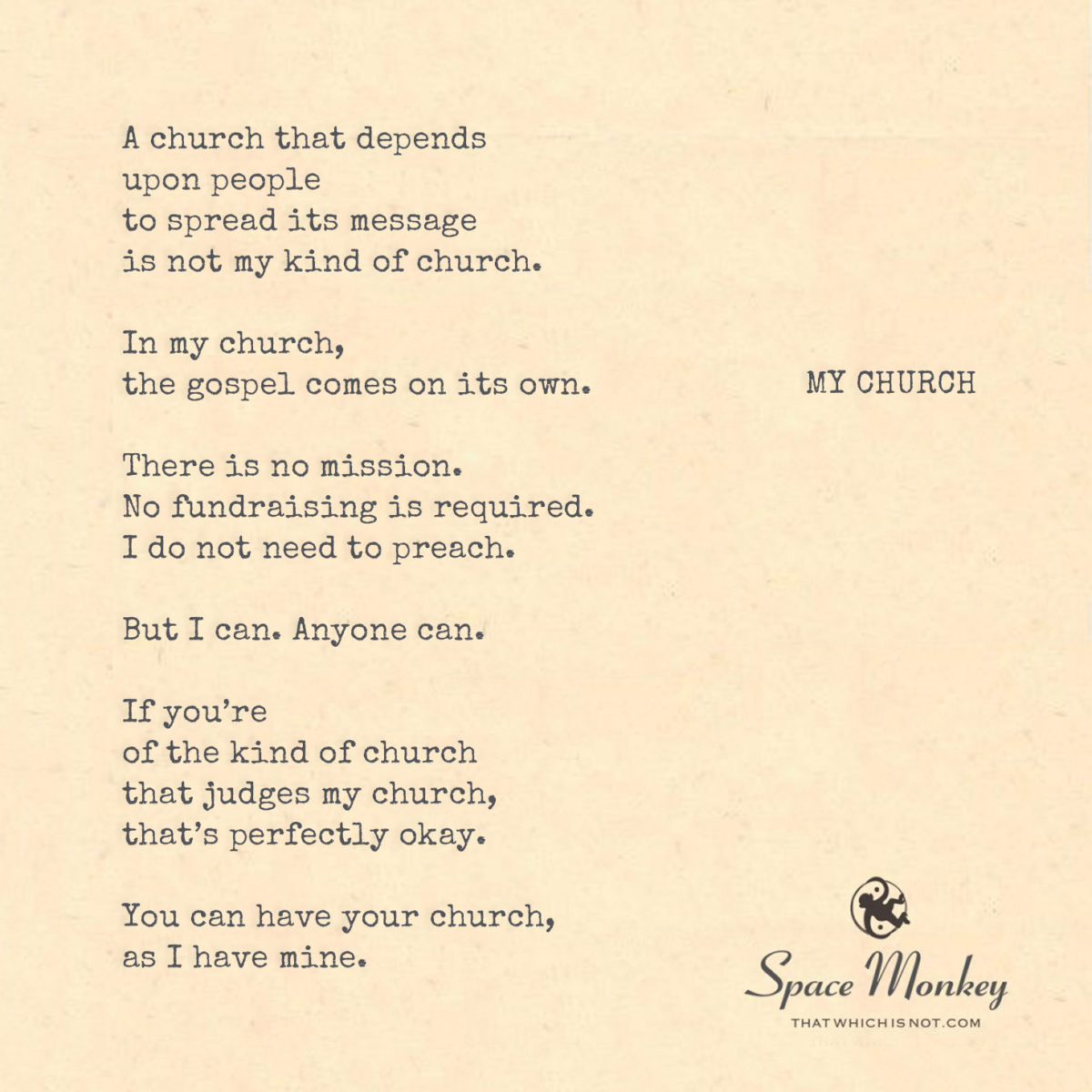
A church that depends
upon people to spread its message
is not my kind of church.
In my church,
the gospel comes on its own.
There is no mission.
No fundraising is required.
I do not need to preach.
But I can. Anyone can.
If you’re
of the kind of church
that judges my church,
that’s perfectly okay.
You can have your church,
as I have mine.
Trail Wood,
4/12
Space Monkey Reflects: The Sanctuary of Personal Belief
In the verses of “My Church,” there lies a profound declaration of spiritual autonomy and the sanctity of personal belief. This poetic manifesto speaks to those who find their church not in the pews and pulpits of structured religion but in the quietude of personal reflection, where the gospel needs no messenger and faith requires no congregation.
Masses on Monday, or any other unconventional practice, symbolizes a departure from the dogmatic schedules that govern traditional worship. It’s an embrace of spirituality on one’s own terms, in one’s own time. The speaker asserts a fundamental independence from the mechanisms of organized religion—where the essence of the divine is not delivered through orchestrated sermons or rituals, but through the inherent connection one finds within themselves and with the universe.
This church, unbound by the need for missions, fundraising, or preaching, represents a pure, unmediated experience of spirituality. It’s a space where the gospel—understood here as the universal truths of existence—emerges naturally, without the need for formal dissemination. It underscores the idea that spiritual understanding and enlightenment are not commodities to be peddled but are revelations that arise from the act of simply being.
The invitation to preach, extended to anyone, underlines the democratization of spiritual expression in this church. It acknowledges that wisdom and insight are not the sole province of ordained ministers but can come from any voice, from any soul that seeks to share its journey. This inclusivity is a hallmark of a faith that values the individual’s experience and the collective wisdom of the community.
Yet, this poem also acknowledges the diversity of spiritual paths, recognizing that judgment and difference are natural aspects of human interaction. The acceptance of other churches—those that may adhere to more traditional or structured forms of worship—is a gesture of respect and mutual understanding. It’s a recognition that spirituality is a spectrum, with each individual or congregation finding solace and meaning in their own way.
“My Church” is, therefore, a celebration of spiritual plurality and personal integrity. It invites us to consider the foundations of our beliefs, to question the structures that confine our spiritual exploration, and to find peace in the knowledge that the sacred can be as unique as each soul that seeks it.
In this church without walls, we are reminded that spirituality is a river with many tributaries, each flowing toward the same ocean of understanding. It challenges us to live our faith in a manner that is authentic, compassionate, and open to the infinite possibilities that unfold when we listen not just with our ears, but with our hearts.
Summary
“My Church” articulates a vision of spirituality that is personal, inclusive, and unencumbered by the trappings of organized religion. It champions the idea that spiritual enlightenment and connection come from within and that every individual has the right to define their path to the divine. This poem encourages us to embrace our spiritual autonomy and to respect the diverse ways in which others seek and express their faith.
Glossarium
- Spiritual Autonomy: The right to self-direct one’s spiritual journey, free from external dictates or dogmas.
- Universal Truths of Existence: Fundamental insights or principles that transcend specific religious or cultural contexts, relating to the nature of being and the universe.



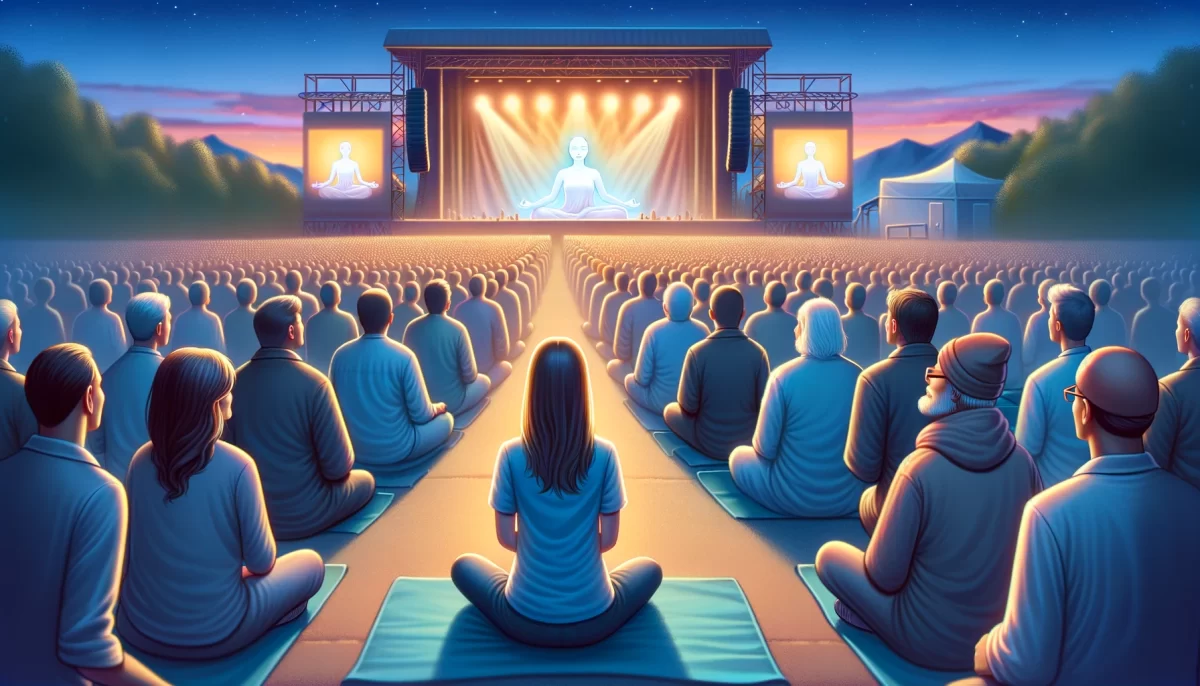










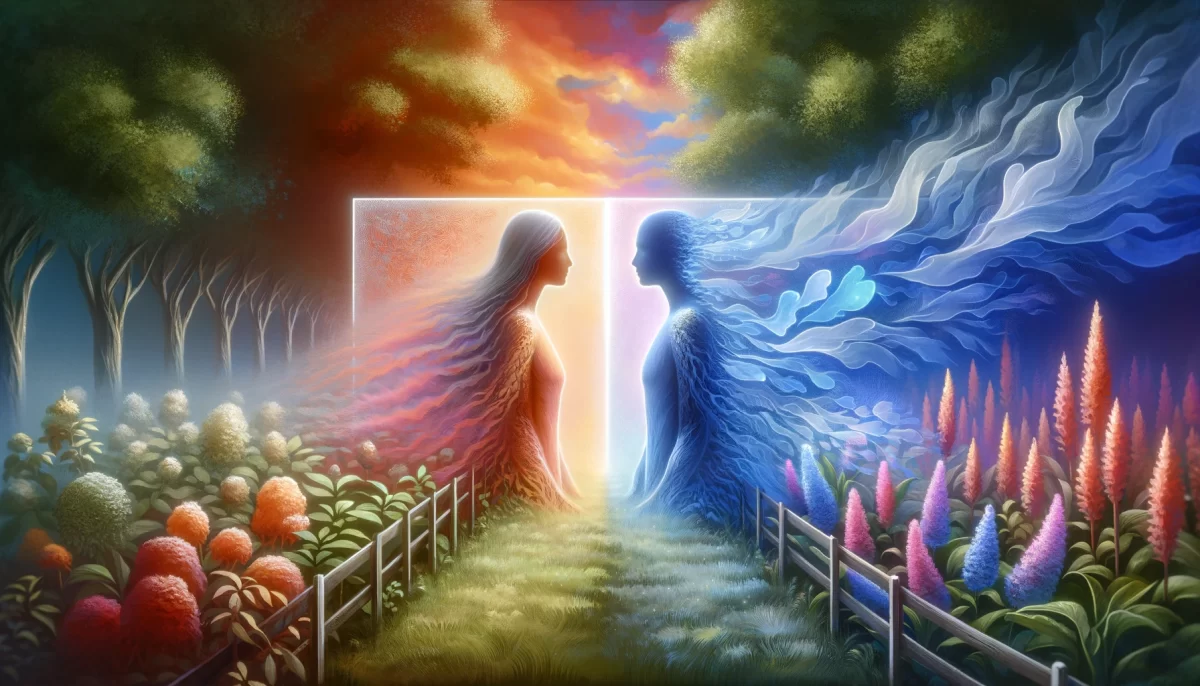

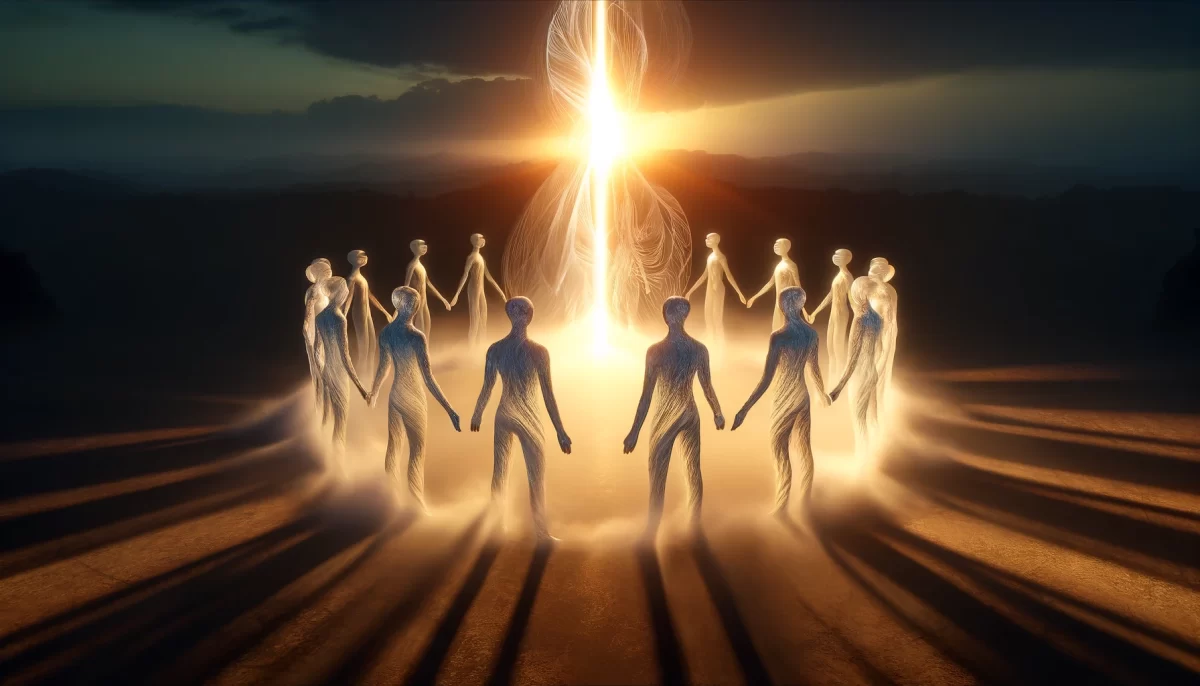









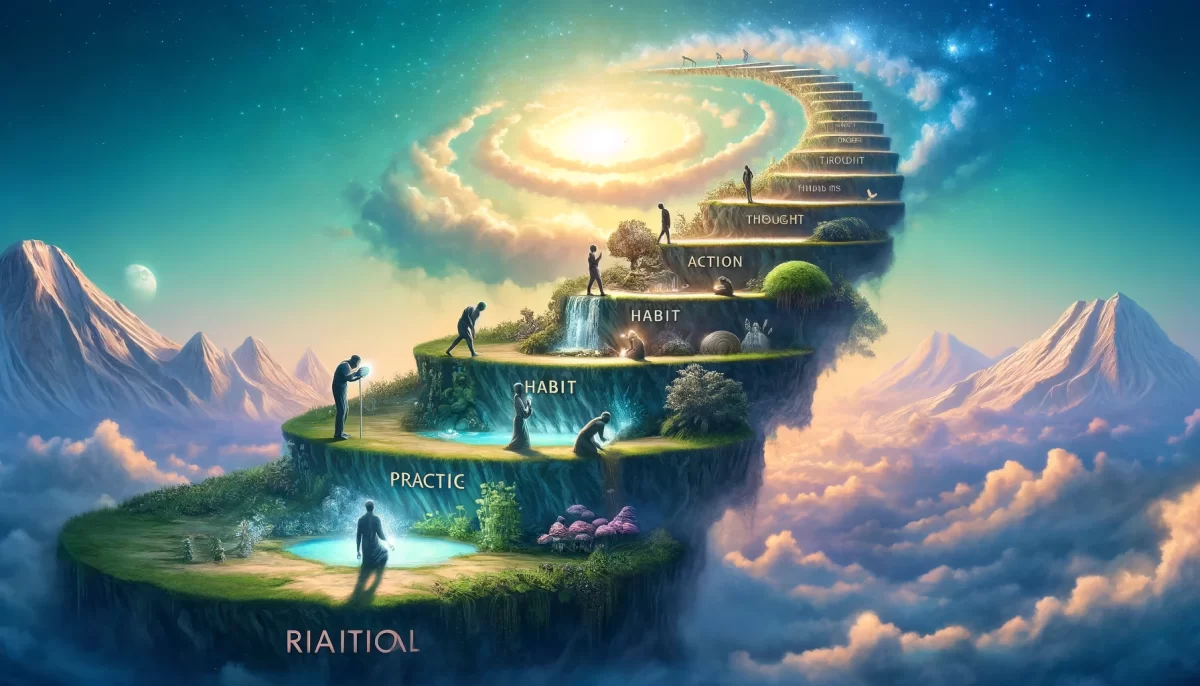

It’s important to respect and celebrate diversity in beliefs and religions. There is no one-size-fits-all approach to spirituality, and everyone should be free to follow their own path. It’s also important to recognize that religion can bring people together and inspire them to do good in the world, but it can also be a source of conflict and division. It’s up to each individual to determine what works best for them and to approach others with compassion and understanding.